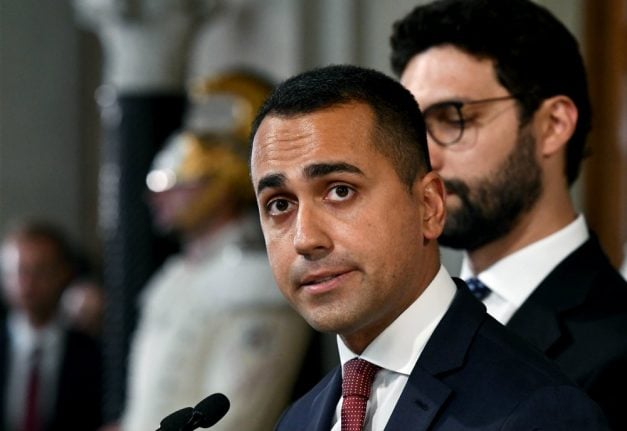The country's president Sergio Mattarella on Thursday gave the parties four days to reach an accord following the collapse of Italy's dysfunctional populist alliance this week.
The Five Star Movement (M5S), which had been governing Italy with Matteo Salvini's far-right League party, has indicated it may be open to an alliance with the left instead — previously almost unthinkable after years of vicious arguments.
Salvini pulled the plug on the coalition earlier this month and Prime Minister Giuseppe Conte resigned on Tuesday.
The discussions between PD and the Movement (M5S) had found “ample agreement on social and environmental issues”, negotiator Graziano Delrio from the Democratic Party said after two hours of talks.
“It's really a good start,” he said, adding that further meetings over the draft budget for the eurozone's third largest economy would be held “in the coming hours”.
Italy needs to approve a budget in the next few months or could face an automatic rise in value-added tax that would hit the least well-off families the hardest and likely plunge the country into recession.
PD leader Zingaretti has said his lawmakers would form an alliance dependent on five conditions.
They include a radical shift in Italy's zero-tolerance policy on migrants crossing the Mediterranean, pro-European policies and a focus on improving living standards.
The M5S has listed ten key policies, including a plan to slash the number of lawmakers in parliament from 950 to 605.
The Movement's negotiator, Francesco D'Uva, said he had asked the PD for guarantees the lawmakers would be cut.
The parties only have a few days to find common ground.
Mattarella said consultations will begin again Tuesday, but did not say for how long they would run.
Italian media speculated that he might wait until Wednesday to address the nation and either announce a new government — and name its prime minister — or send the country to the polls.
“Mattarella has been clear, he wants a credible and sustainable government,” said Manlio Di Stefano, a junior foreign minister and one of the M5S's most prominent lawmakers.
He also ruled out a revival of the M5S-League coalition saying Salvini “has betrayed us and is untrustworthy”.



 Please whitelist us to continue reading.
Please whitelist us to continue reading.
Member comments